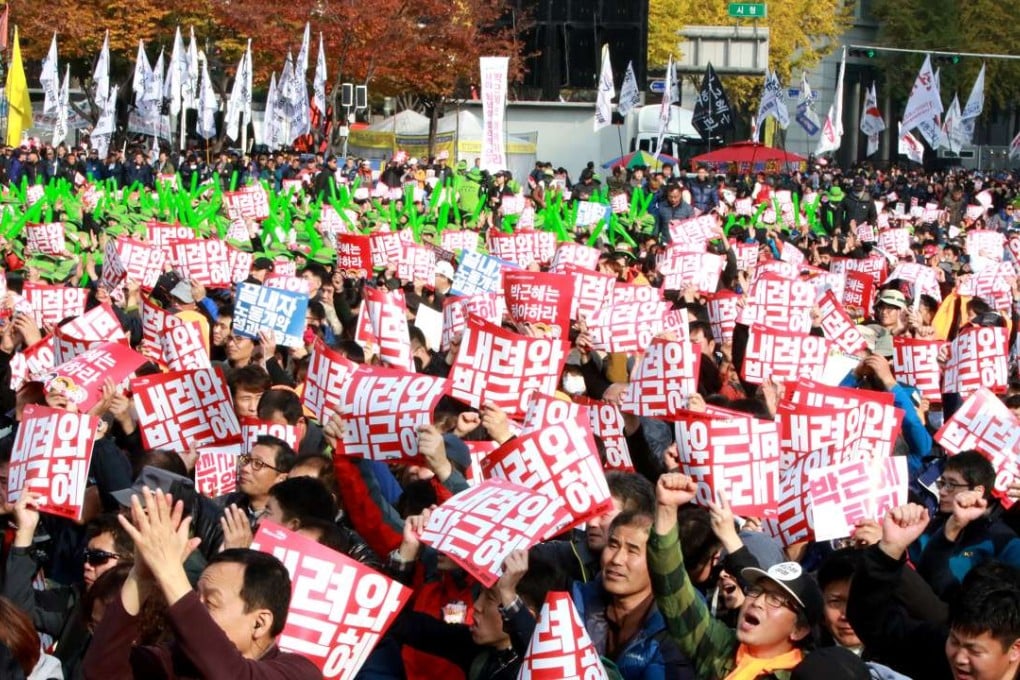What happens if South Korea’s President Park Geun-hye resigns?
Beijing at least will be pleased, given the stance of her three likeliest successors – including Ban Ki-moon – on a US missile system and an intelligence-sharing pace with Japan

Last Saturday, upwards of one million demonstrators flooded the streets of downtown Seoul, demanding President Park Geun-hye’s resignation and making one thing demonstrably clear – public will is now the single thread by which the presidency hangs, and it doesn’t look good for Park.
Beijing, however, is no doubt enjoying the show, given that the three men next in line are all vastly more attractive options for China, especially when it comes to the issues of whether to deploy the antiballistic missile system known as THAAD or sign the intelligence-sharing pact with Japan known as GSOMIA.

The scandal surrounding Park relates to whether she allowed her longtime friend, Choi Soon-sil, to influence state affairs, forced conglomerates to furnish her retirement slush fund and whether she is in thrall to a cult led by Choi. There’s no strong evidence of any of this yet, but the blood is in the water and the sharks of political opportunity are circling.
More on Park Geun-hye
“We may see her resignation, followed by immediate re-elections for the next president,” said Kwon Hyeong-ki, professor of political theory at Seoul National University. “This is the first scenario. Many are calling for this process right now.”